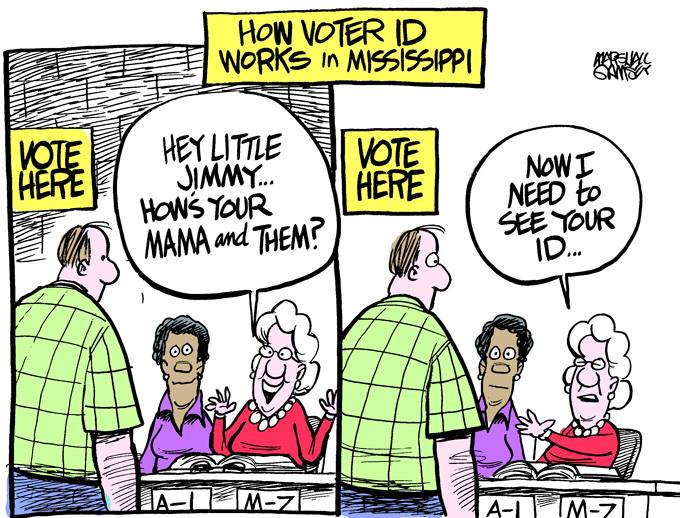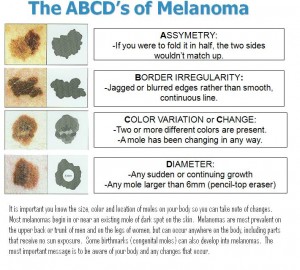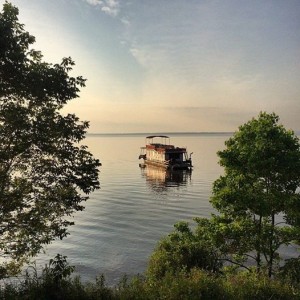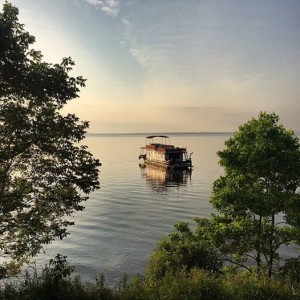 The sound of a motor awakened Stanley Wilson.
The sound of a motor awakened Stanley Wilson.
He hadn’t heard a motor in at least a decade. Then it had been low-flying plane buzzing the island. Was this a dream? It had to be a dream. But it wasn’t — it was a dive boat heading straight toward him.
His eyes shot open.
“Oh God,” he thought, “Rescue!” He jumped out of his hammock and tripped over coconut shells. God he hated coconuts. He tried to straighten his hair, gave up and ran toward the beach.
“Rescue! It has been how many years now?” he thought.
But he didn’t know.
Stanley had lost track of time years ago. Every day was the same — well, except when typhoons roared in from the Coral Sea. He had lived on that small island in the Solomon Islands since his raft had washed up onshore. The last real date he knew was 1943. And judging by the wrinkles on his hands and gray in his beard, that was a long, long time ago.
The dive boat coasted into the cove, gliding toward the beach. The captain, a tall, tan man in his late 50’s, explained to the group, “We normally don’t dive on this island. The natives say there are evil spirits here. In the 40’s and 50’s, several divers came out here and never came back. But don’t worry,” the captain patted his pistol, “this will tame any evil spirits.” The divers looked around at the crystal blue water and felt nervous. It was rumored that this bay help several World War II wrecks and was haunted by the souls of dead Japanese. American fighters had caught the Japanese napping and eliminated a small garrison of troops and their supplies. Only one pilot was lost. The island was bypassed. And all the Japanese were dead.
Or so they thought.
One Japanese solider, Lt. Ei Yamaguchi had survived. Rising like a phoenix out of the ashes of burned huts, he buried his friends and vowed to kill anyone who dared touch foot on the island. And he did. He killed every person who came near it for nearly a quarter of a century — except for one man: The American he had seen float down into the sea.
Lt. Ei Yamaguchi and Captain Stanley Wilson fought like mortal enemies for nearly a quarter of a century. They hunted and tracked each other like big game — until one of the strongest typhoons to hit the Pacific ocean nearly swept both out to sea. Nature has a way of turning the tide of men’s souls. The hunters became friends — until cancer took Ei Yamaguchi’s life in 1995.
Of course, neither knew the date to put on the gravestone. A simple rock was all that marked a warrior’s final resting place. And Stanley was left alone. Very alone.
Until today. He blinked his eyes as he looked at the boat glide toward the beach. How many years had he fruitlessly lit signal fires? How many years had he prayed for this day to come? His gray, bony body walked out of the jungle and out onto the beach.
“Um, Captain, you’re not going to believe what I see,” one of the divers said pointing at the old man.
The divers, seeking relics, had found a the mother of all relics: A living World War 2 Marine pilot.
In a quonset hut in the city of Honiara on the island of Guadalcanal.
“Let me get this straight…” the captain said, “You are a veteran of World War 2? “The pilot looked at the old man and rubbed his beard. He did that when he was amazed. And it was hard to amaze him. “Oh, and you can call me Sid if you want.”
Stanley looked at the flatscreen TV on the wall. CNN showed images of what looked like spaceships zooming across the sky. He was stunned at the cold air that blew out of the box in the window. And there was a man across the room talking into a small, flat, black object. What kind of strange place was he in?
Stanley spoke, “How’s the war coming along?” He was afraid to mention his Japanese friend. He didn’t want to be tried for treason.
“Afghanistan?” the captain said watching the look of confusion on Stanley’s eyes.
“No,” Stanley tersely said, “The war against Japan. Are we winning?”
“Well, the captain said while rubbing his beard,” I drive a Honda.”
“So the Japanese won.” Stanley looked crestfallen. He knew that he would soon end up in a prison.
“No, Stanley. We won the war nearly 70 years ago. We dropped two atomic bombs and the Emperor surrendered.”
Stanley had no idea what an atomic bomb was. He was just trying to imagine a Japanese surrendering. “What’s the date?”
“June 2, 2014.”
Stanley gazed out the window. Tears began to burn his eyes.
“Sid, I’ve been on that island for 70 years?” he said slowly as he turned around. The captain nodded. Stanley had already spoken more in the past 15 minutes than he had in the past 15 years. Now he was rendered speechless again.
“I’m really not sure how you survived for so long,” the captain marveled. He had put in a call to a buddy of his who was in the U.S. Marines. “We need to get you caught back up with civilizations. Some of your old friends are coming to give you a ride home.”
Like a diver trying to get back to the surface, Stanley knew he couldn’t rise too quickly into the present. As they waited on the Marines. the captain showed him how to use an iPad. Stanley savored reading again. It took him about an hour until he could make sense of the words. But it came back slowly. “Omigod,” he said. Just reading about World War 2 left his mouth hanging. He looked at the huge mushroom cloud rising over Hiroshima.
The next day, the captain put Stanley in a Jeep and drove him to the airstrip. “Your Marine friends don’t leave a man behind. And you, Stanley, have definitely come home.” Both men watched as a giant C-130 cargo gracefully touched down on the small coral strip. It was the same strip he had taken off from 70 years ago. A color guard in dress uniforms exited the plane and an officer beckoned him aboard. Now he was reentering a world he would struggle to understand.
A cemetery in Woodstock, Vermont.
Stanley stood staring at the gravestones in front of him. There were his parents. His wife. His son. They had lived a whole life thinking he was dead. He watched as the fall leaves tumbles and swirled around him. The parade had been jarring enough — seeing the cars and the neon lights. Getting the medal from the Commandant of the Marine Corps was bizarre, too. He looked at the statue of the men raising the flag on Iwo Jima behind him. He had lost his best friend there and didn’t even know it. But that was not all that was hard to understand. Flying on a jet at nearly the speed of sound. And then there was the Internet. Oh boy, that was a mindblower.
Stanley just looked at the stones and sighed. He had had his whole life stolen from him. And so had Lt. Yamaguchi, too. He had found his friend’s family in Yokohama, Japan. At least his friend would be going home, too.
But what kind of home was this? Who did he have left? He had watched the movie Castaway in the hotel room. He could relate to Tom Hanks’ character losing Wilson and the love of his life. He should be in this graveyard, too. Now he was just a zombie in a life that wasn’t his.
As he stood there quietly wondering what was next in his life, a black BMW pulled up to the graveyard. “Did we lose to Germany, too?” he thought as he looked at the German luxury car. Out stepped a 45-year old man and a little girl. Both ran toward him. The man looked surprising like he had so many years ago.
“Grandpa?”
His son had had a son. And his name was Stanley, too.
“Grandpa, is that you?” he repeated. Stanley stuck out his hand. The man grabbed him and hugged him tightly.
“I’ve never hugged a ghost before.”
The little girl hugged him, too. Stanley looked at the Tiffany-glass Jesus in the church window. Seventy years of prayers had finally been answered.
Stanley lived out the rest of his years in Woodstock with his family. He learned to love the Internet and his great granddaughter Annie. He craved steak and avoided seafood every chance he could. And refused to drive Japanese cars and vowed to never touch another coconut again.
 “Get your mind right.” Coach John Paty, Sprayberry High School 1985
“Get your mind right.” Coach John Paty, Sprayberry High School 1985








